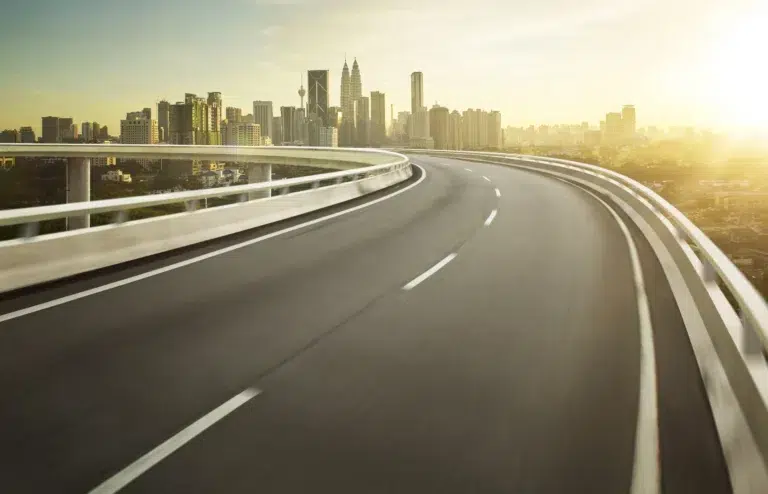6 fascinating spots to check out in Kandal, Cambodia
The home province of Cambodia’s former capital, Kandal remains an economic powerhouse as well as a rising destination for real estate investment
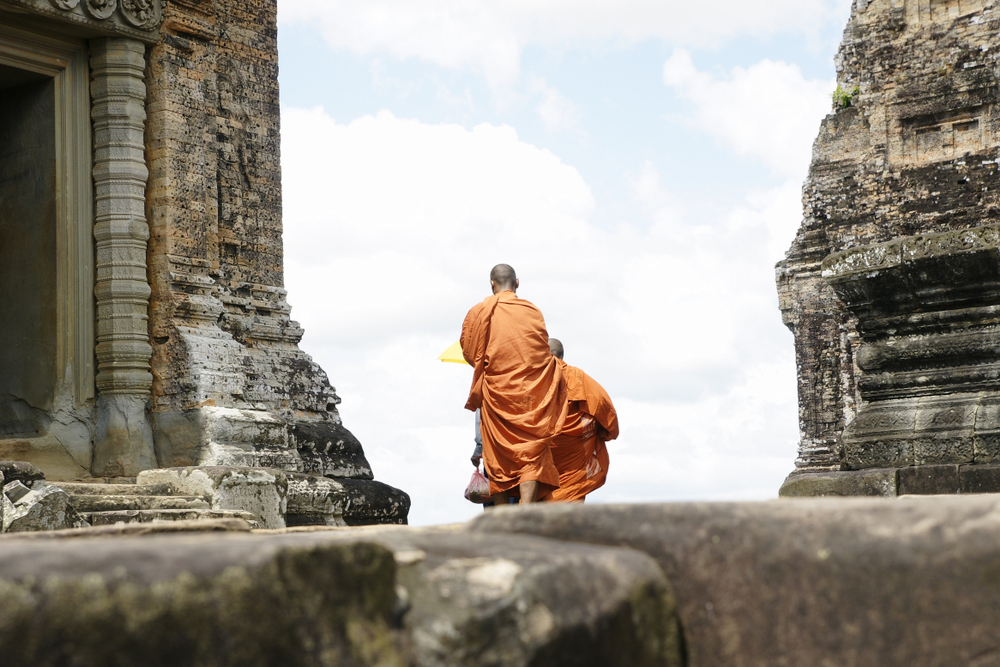
contemporary investors. JoaquinCorbalanP/Shutterstock
Kandal province might not be a name readily familiar to those outside Cambodia. But it is crucial to the national economy. The majority of the largest city Takhmao’s residents commute to Phnom Penh, with road links facilitated by bridges recently constructed across the Mekong. Much of Kandal’s prosperity rests on its proximity to the capital, with agriculture, garment making, and artisan trades—silk weaving, wood carving, handicrafts—all prominent industries. It also houses the former capital of Oudong (see below), a significant city in Cambodian history. Offering quick and easy access to Phnom Penh, Kandal is reasserting its value to contemporary investors.
Borey Arey Ksat
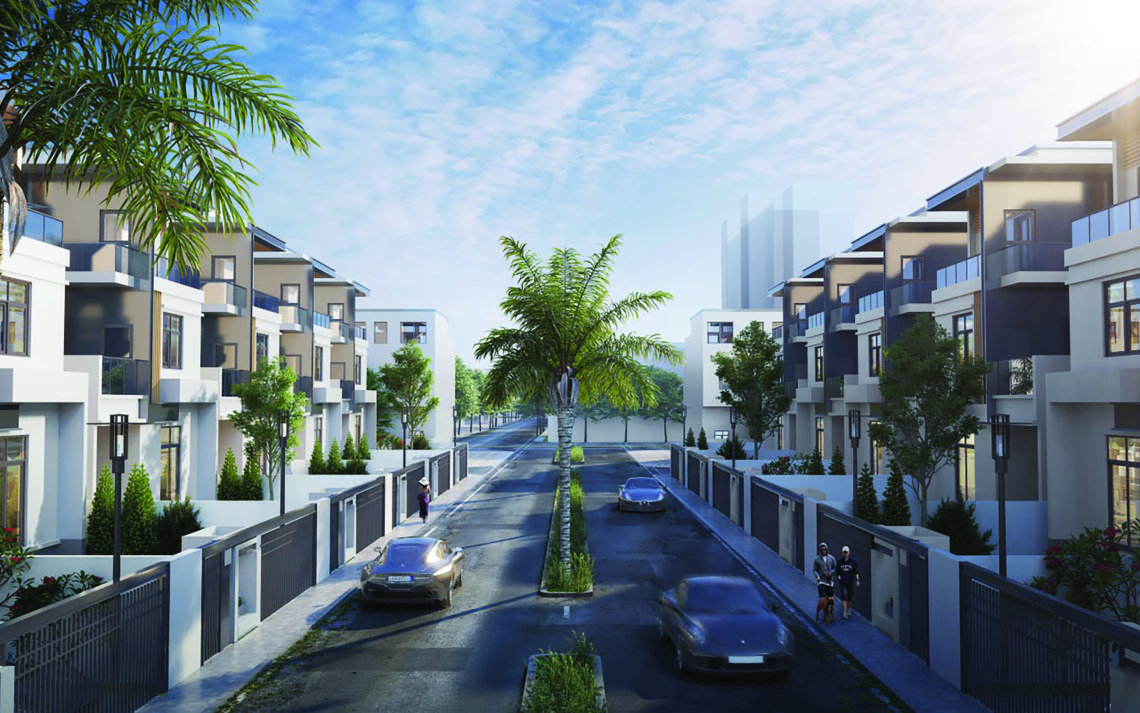
Scheduled for completion in 2023, Borey Arey Ksat (BAK) will be the first integrated development in Leav Aem district to feature contemporary houses, villas, a gym, and pool. It also flaunts a clubhouse, mall, international university, and hospital and its surrounding area will eventually include condos, business quarters, a bank, and schools. The project is a short drive from Arey Ksat ferry port, linking the area to Phnom Penh’s Chroy Changvar peninsula. The Cambodia–Korea Friendship Bridge, scheduled to commence building next year, will cut driving time and stimulate interest in Arey Ksat, as well as raising land prices. BAK has already received recognitions at last year’s PropertyGuru Cambodia Property Awards.
Le Urban Eco Park
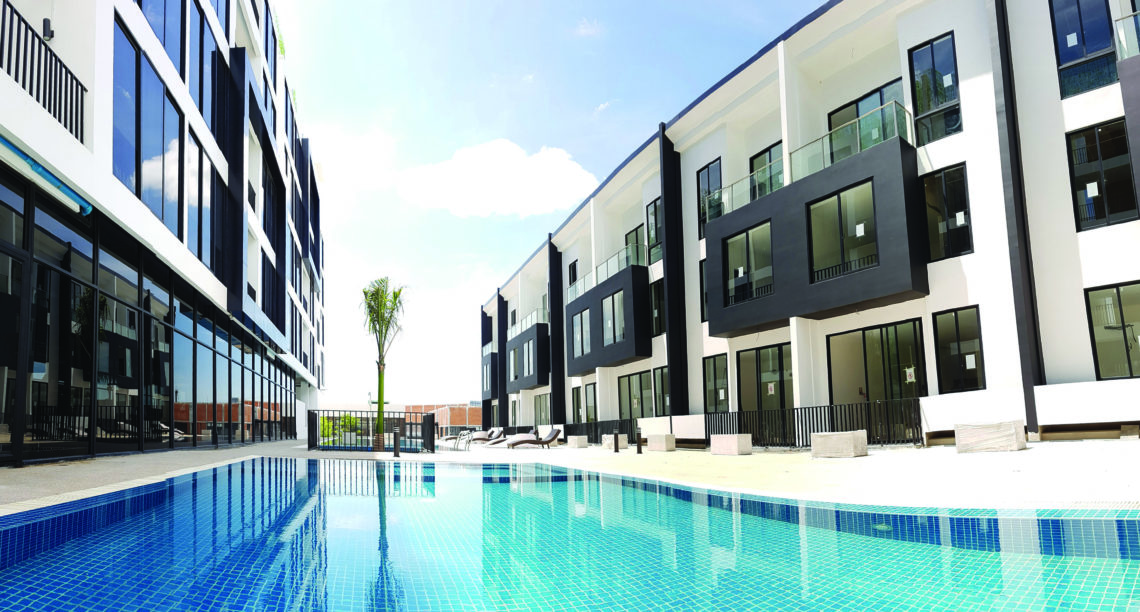
Upon opening in 2016, Le Urban Eco Park made waves in the field of ecologically minded construction in Cambodia with its innovative giga-project in Kandal Steung district. And it continues to win awards today, scooping the Best Industrial Development prize at this year’s PropertyGuru Cambodia Property Awards. The Singaporean-designed initiative takes the concept of integrated living to a new level by fusing residential, commercial, and business elements. The satellite town counts 120 residences and townhouses, 84 shops, a supermarket, and 15 hectares of industrial park. The community is designed as a self-sustaining exemplar of live-workplay, with energy efficiency, plentiful green space, and natural materials foregrounded in its construction. Eco-initiatives include solar-powered water heating, recycled wastewater, and advanced lighting controls. Onsite factories housing light industrial businesses are major employers in the area.
HOME Chamkar
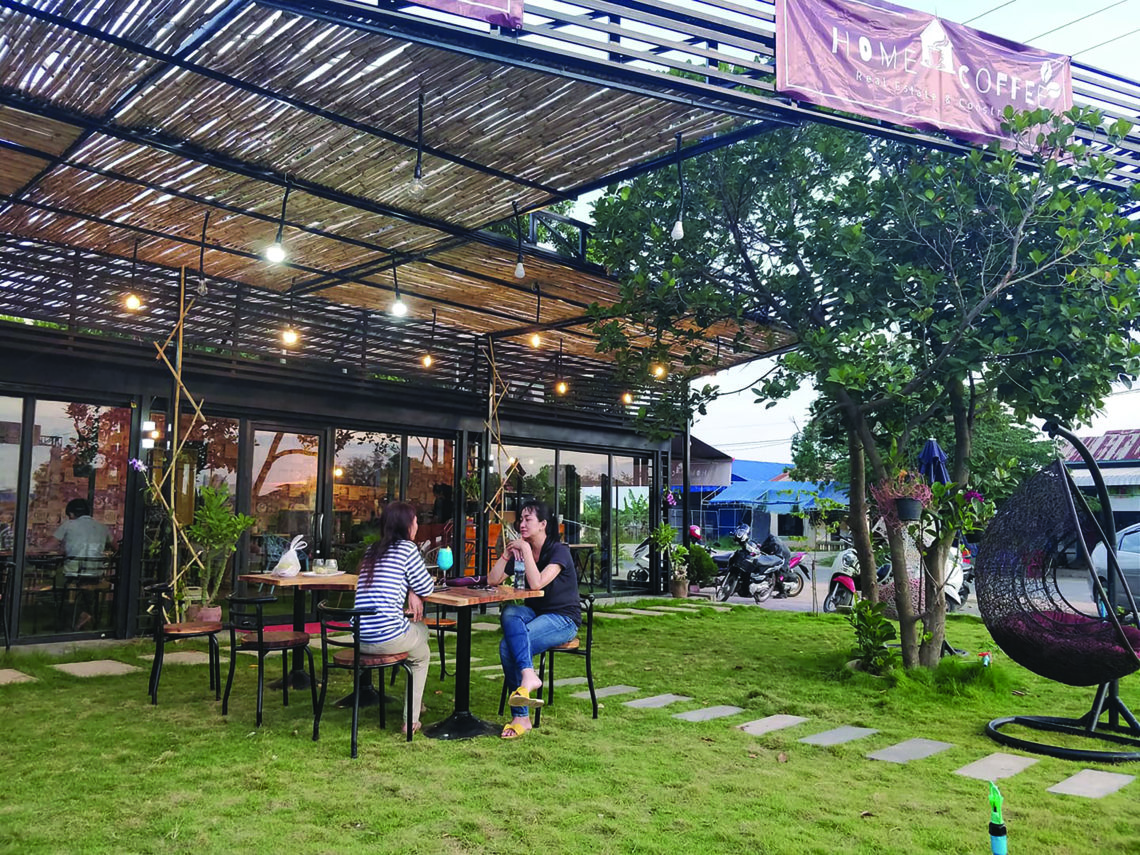
This alfresco comfort-food restaurant in Sray Chrum Village lies in the Arey Ksat area. It wins great popularity for its impeccable location (notably among passing cyclists, for whom it provides ample bike racks). HOME Chamkar is perched right on the Mekong riverside and lies close to the ferry terminal that effectively connects Kandal province with Phnom Penh. Its relaxing setting is the key USP, and the venue maximises the rustic aura with a front-ofhouse boardwalk where diners soak up refreshing breezes and views of the enticing surrounds, which include many paths lined with mango trees and a lemongrass farm. Phnom Penh’s enervating city buzz may be only a few kilometres upriver, but it feels a world away.
The River Mall/Center City Ta Khmao
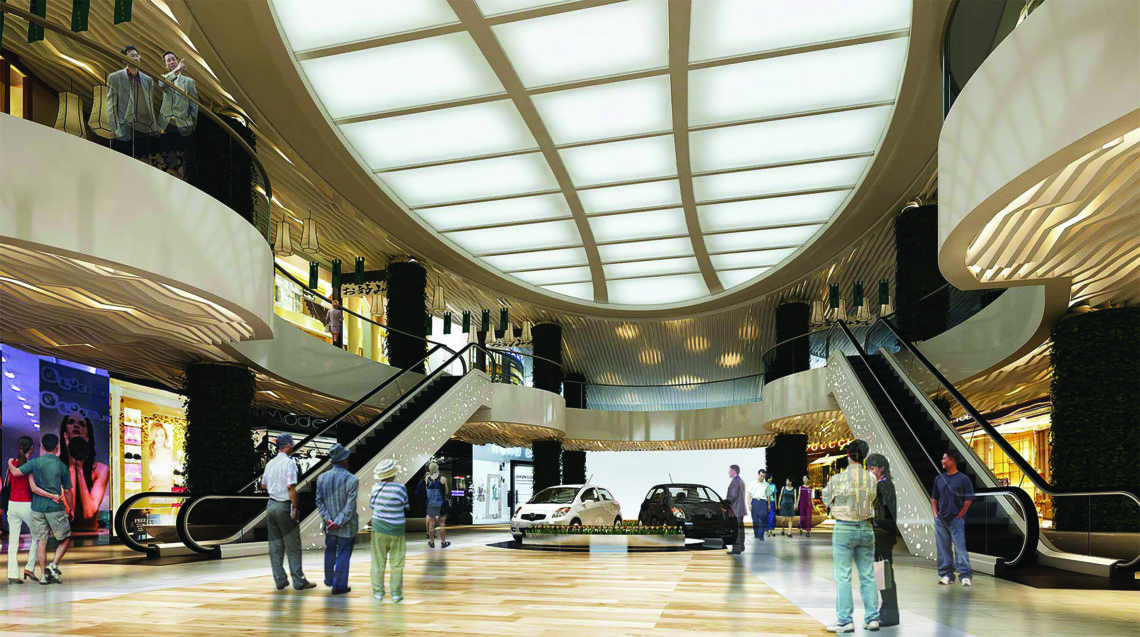
It was predicted by none other than Khmer architect extraordinaire Vann Molyvann that Phnom Penh will continue to grow outwards towards Takhmao because of this area’s flood-resistant qualities. For proof of Molyvann’s prophecy, look no further than the Tonle Bassac riverfront and the imposing complex Center City, which opened in 2016. This integrated development, incorporating residential, commercial, and leisure space, is a joint venture between local developer Tang Kung Group and a Malaysian investor. It encompasses two 27-storey towers, 484 condominium units, a 68-unit commercial wing, two-storey shopping mall, health and fitness centre, swimming pools, and children’s playground. The River Mall, Takhmao’s de facto prime shopping destination, includes dozens of shops, restaurants, and cafés, complementing the “work-live-play” lifestyle.
The Fence Café
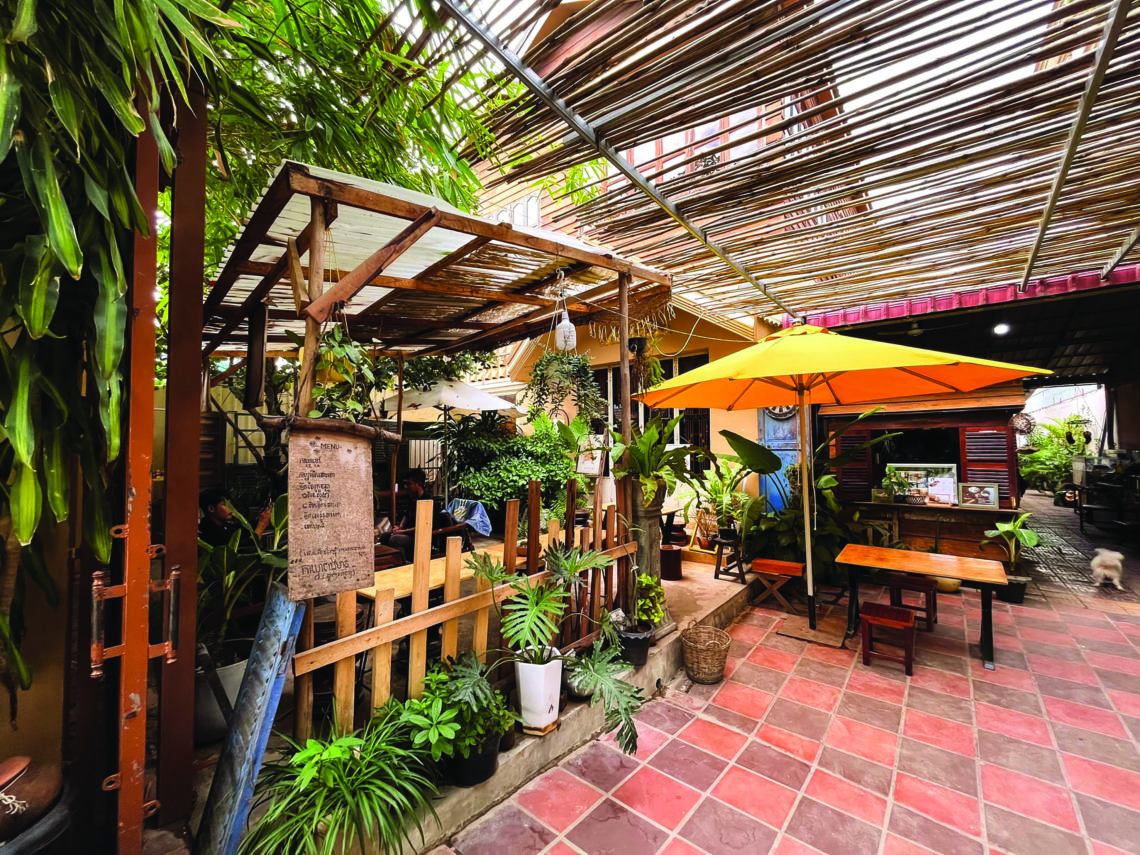
Recently, an increasing number of people in Phnom Penh have been turning to longdistance cycling outside the city, touring suburban areas for a change of scene while also getting much-needed fresh air and exercise away from the frenzied development that’s taken over the capital. In Takhmao, The Fence Café is a popular, expertly curated stop for day-trippers on the route of many biking trails. Egg coffee is the signature drink, and collectible, oldschool coffee and tea paraphernalia enliven the interiors. Painted shutters and doors, rattan rugs, and bamboo ceilings all add to the charmingly antiquated atmosphere. The café’s easygoing ambience has made it a go-to destination for pop-up markets, designers creating artwork, and even chess tournaments. A second outlet is located in central Phnom Penh.
Oudong
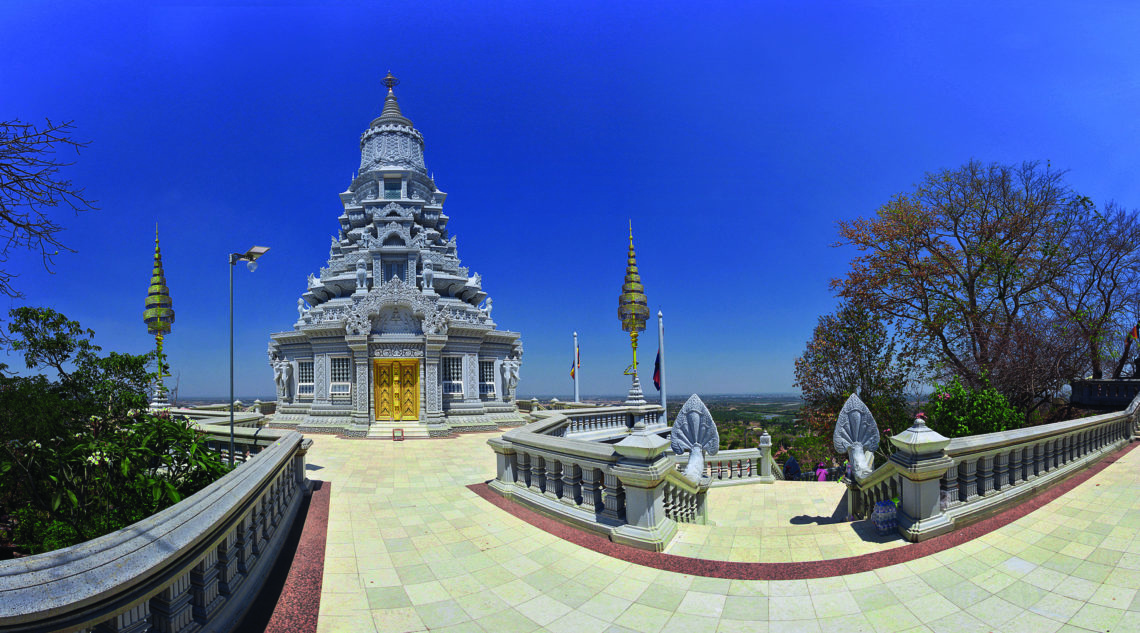
Cambodia’s capital and royal residence from 1618–1866 was this town, now strewn with relics remaining from the period, and set in Ponhea Lueu district. It’s a beautiful site to visit, with the stupas and temples shadowed by the rural location at the foot of Phnom Oudong (Oudong Mountain). The most enduring architecture dates from the reign of King Ang Duong (1840–60), who built many canals, terraces, bridges, and hand-carved pagodas. The Khmer Rouge gravely damaged Oudong and its religious structures in 1977, but it remains a captivating vision of faded grandeur. The 500-step climb up Phnom Oudong is rewarded by sublime views of the luxuriant countryside, extending as far as Phnom Penh’s Silver Pagoda and Royal Palace.
The original version of this article appeared in PropertyGuru Property Report Magazine Issue No. 175 on issuu and Magzter. Write to our editors at [email protected].
Recommended
How LIMA Estate in the Philippines is reshaping green business hubs
LIMA Estate models a citywide vision that uplifts workers while appealing to climate-conscious employers
ARES White Paper Volume 3: The era of adaptive reinvention
Pioneering sustainable and innovative practices in urban development
ARES White Paper Volume 2: Unravelling the power of data revolution in real estate
Insights on proptech, smart cities, and sustainable development
ARES Digital White Paper Volume 1: The fundamentals of responsible building
Green and climate heroes join forces to discuss how Asia Pacific can weather the current environmental crises and the looming effects of climate change






